Filter by
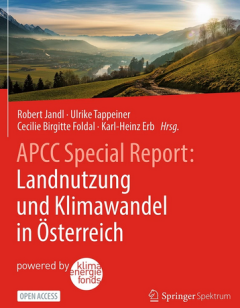
APCC Special Report: Landnutzung und Klimawandel in Österreich
Krisis iklim dan penggunaan lahan saling terkait erat dan mempengaruhi kita semua. Penggunaan lahan menawarkan potensi besar untuk mengatasi krisis iklim. Bagaimana potensi ini dapat dimanfaatkan dalam konteks pembangunan berkelanjutan yang secara holistik mempertimbangkan dimensi sosial dan alam?. Ini adalah buku akses terbuka. Ekosistem daratan menyediakan berbagai layanan ekosistem yang tida…
- Edition
- -
- ISBN/ISSN
- 978-3-662-67864-0
- Collation
- online resource ( XX, 715 Pages)
- Series Title
- -
- Call Number
- 333.7309436 JAN a
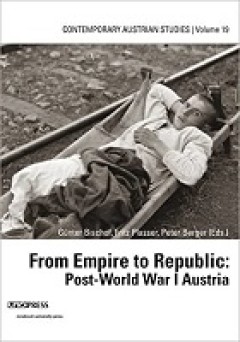
From Empire to Republic: Post-World War I Austria
After the dissolution of the Austro-Hungarian Monarchy, Austria transformed itself from an empire to a small Central European country. Formerly an important player in international affairs, the new republic was quickly sidelined by the European concert of powers. The enormous losses of territory and population in Austria’s post-Habsburg state of existence, however, did not result in a politic…
- Edition
- -
- ISBN/ISSN
- 9781608010257
- Collation
- -
- Series Title
- -
- Call Number
- -

Universities in Imperial Austria 1848–1918: A Social History of a Multiling…
"Combining history of science and a history of universities with the new imperial history, Universities in Imperial Austria 1848–1918: A Social History of a Multilingual Space by Jan Surman analyzes the practice of scholarly migration and its lasting influence on the intellectual output in the Austrian part of the Habsburg Empire. The Habsburg Empire and its successor states were home to deve…
- Edition
- -
- ISBN/ISSN
- -
- Collation
- -
- Series Title
- -
- Call Number
- -

Economic evaluation of climate change impacts : development of a cross-sector…
This volume deals with the multifaceted and interdependent impacts of climate change on society from the perspective of a broad set of disciplines. The main objective of the book is to assess public and private cost of climate change as far as quantifyable, while taking into account the high degree of uncertainty. It offers new insights for the economic assessment of a broad range of climate ch…
- Edition
- 1
- ISBN/ISSN
- 9783319124575
- Collation
- XVII, 468
- Series Title
- -
- Call Number
- 943.6
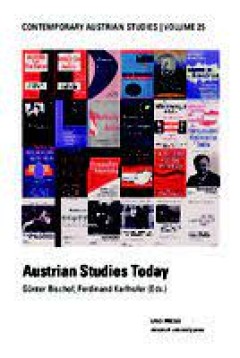
Austrian Studies Today
"This volume celebrates the study of Austria in the twentieth century by historians, political scientists and social scientists produced in the previous twenty-four volumes of Contemporary Austrian Studies. One contributor from each of the previous volumes has been asked to update the state of scholarship in the field addressed in the respective volume. The title “Austrian Studies Today,” t…
- Edition
- -
- ISBN/ISSN
- 9783903122178
- Collation
- -
- Series Title
- -
- Call Number
- -

Global Austria
"After the dissolution of the Austro-Hungarian Monarchy, Austria transformed itself from an empire to a small Central European country. Formerly an important player in international affairs, the new republic was quickly sidelined by the European concert of powers. The enormous losses of territory and population in Austria’s post-Habsburg state of existence, however, did not result in a politi…
- Edition
- -
- ISBN/ISSN
- 9781608010622
- Collation
- -
- Series Title
- -
- Call Number
- -
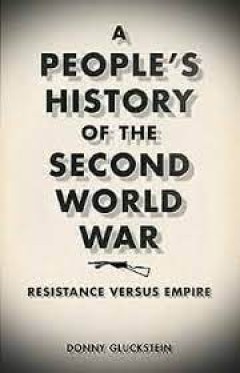
A People's History of the Second World War Resistance Versus Empire
A People's History of the Second World War unearths the fascinating history of the war as fought 'from below'. Until now, the vast majority of historical accounts have focussed on the conflict between the Allied and Axis powers for imperialist mastery. Donny Gluckstein shows that in fact between 1939 and 1945 two distinct wars were fought – one ‘from above’ and one ‘from below’. Using…
- Edition
- -
- ISBN/ISSN
- 9781849647205
- Collation
- -
- Series Title
- -
- Call Number
- -
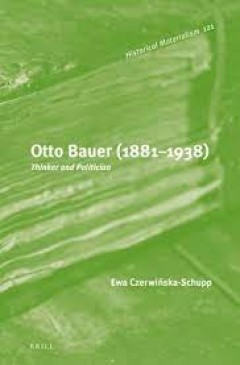
Otto Bauer (1881-1938) Thinker and Politician
Gegenstand des Buches ist die Darstellung Otto Bauers als führende Gestalt des Austromarxismus und der SDAP, sowie die kritisch-analytische Lesart seiner philosophisch-historischen, wirtschaftlichen, soziologischen und sozialpolitischen Theorien, die vor dem Hintergrund der damaligen Diskussion in der II. und der III. Internationale, der politischen Ereignisse in der SDAP, der internationalen …
- Edition
- -
- ISBN/ISSN
- 9789004325838
- Collation
- -
- Series Title
- -
- Call Number
- -
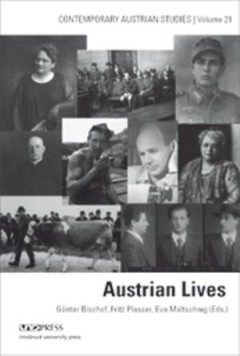
Austrian Lives
Writing biographies for a long time had been a male hegemonic project. Ever since Plutarch and Sueton composed their vitae of the greats of classical antiquity, to the medieval obsession with the hagiographies of holy men (and a few women) and saints, Vasari's lives of great Renaissance artists, down to the French encyclopedists, Dr. Johnson and Lytton Strachey, as well as Ranke and Droysen the…
- Edition
- -
- ISBN/ISSN
- 9781608010929
- Collation
- -
- Series Title
- Contemporary Austrian Studies Volume 21
- Call Number
- 943.6 AUS
 Computer Science, Information & General Works
Computer Science, Information & General Works  Philosophy & Psychology
Philosophy & Psychology  Religion
Religion  Social Sciences
Social Sciences  Language
Language  Pure Science
Pure Science  Applied Sciences
Applied Sciences  Art & Recreation
Art & Recreation  Literature
Literature  History & Geography
History & Geography